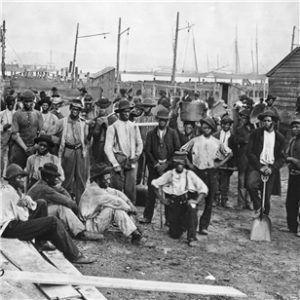Plague Journal, Juneteenth Hangover
June 20, today is Father’s Day. I am suspicious. Could Father’s Day be a “Hallmark holiday,” created by clever marketers to sell cards, to condition “consumers” to spend more? Learning to be a good father is important. I just do not think fatherhood compares to the months of pregnancy, to the hazard of giving birth of becoming a mother.
 Yesterday was Juneteenth and I continue to think about it. Black folk have earned the holiday. What would it have been like in 1865 to live in Texas as a Black person, habituated to enslavement? When word came, the announcement that they were free, did they, could they believe it? I think belief was a process, a new reality which required learning.
Yesterday was Juneteenth and I continue to think about it. Black folk have earned the holiday. What would it have been like in 1865 to live in Texas as a Black person, habituated to enslavement? When word came, the announcement that they were free, did they, could they believe it? I think belief was a process, a new reality which required learning.
Blacks are still learning what it means to be free. Blacks are generally not equal to white citizens in this country. Any encounter with police comes with special risk if the individual is of color. Risk varies from place to place, town to town. In general, red states, those that comprised the old Confederacy are high risk zones for Black motorists. Sandra Bland or George Floyd could testify if they were still alive to speak.
The mission of police is to defend the socio-political order, without need of justification.
Are conditions improving? I could not say. I read this in the morning news feed:
Across Georgia, members of at least 10 county election boards are being replaced, several of them Black Democrats like Lonnie Hollis, above. In Arkansas, election control has been stripped from county authorities. And in Kansas, Republicans overrode a veto from the Democratic governor to enact laws stripping the governor of the power to modify election law.
Democrats worry that proponents of Donald Trump’s conspiracy theories about the 2020 election will soon have much greater control over the election system.
Also out of Georgia: The college football legend Herschel Walker may be considering a bid to challenge Senator Raphael Warnock next year. Should he run, it could test Trump’s power as a kingmaker.
— New York Times 6/20/2021
Our Land
by Langston Hughes
We should have a land of sun,
Of gorgeous sun,
And a land of fragrant water
Where the twilight is a soft bandanna handkerchief
Of rose and gold,
And not this land
Where life is cold.
We should have a land of trees,
Of tall thick trees,
Bowed down with chattering parrots
Brilliant as the day,
And not this land where birds are gray.
Ah, we should have a land of joy,
Of love and joy and wine and song,
And not this land where joy is wrong.
Langston Hughes was born February 1, 1902, in Joplin, Missouri. A powerful figure in the Harlem Renaissance, Hughes is the author of several poetry collections, prose, and plays, including The Weary Blues (Alfred A. Knopf, 1926), Shakespeare in Harlem (Alfred A. Knopf, 1942), I Wonder as I Wander (Rinehart, 1956), and others. He died on May 22, 1967, in New York City.